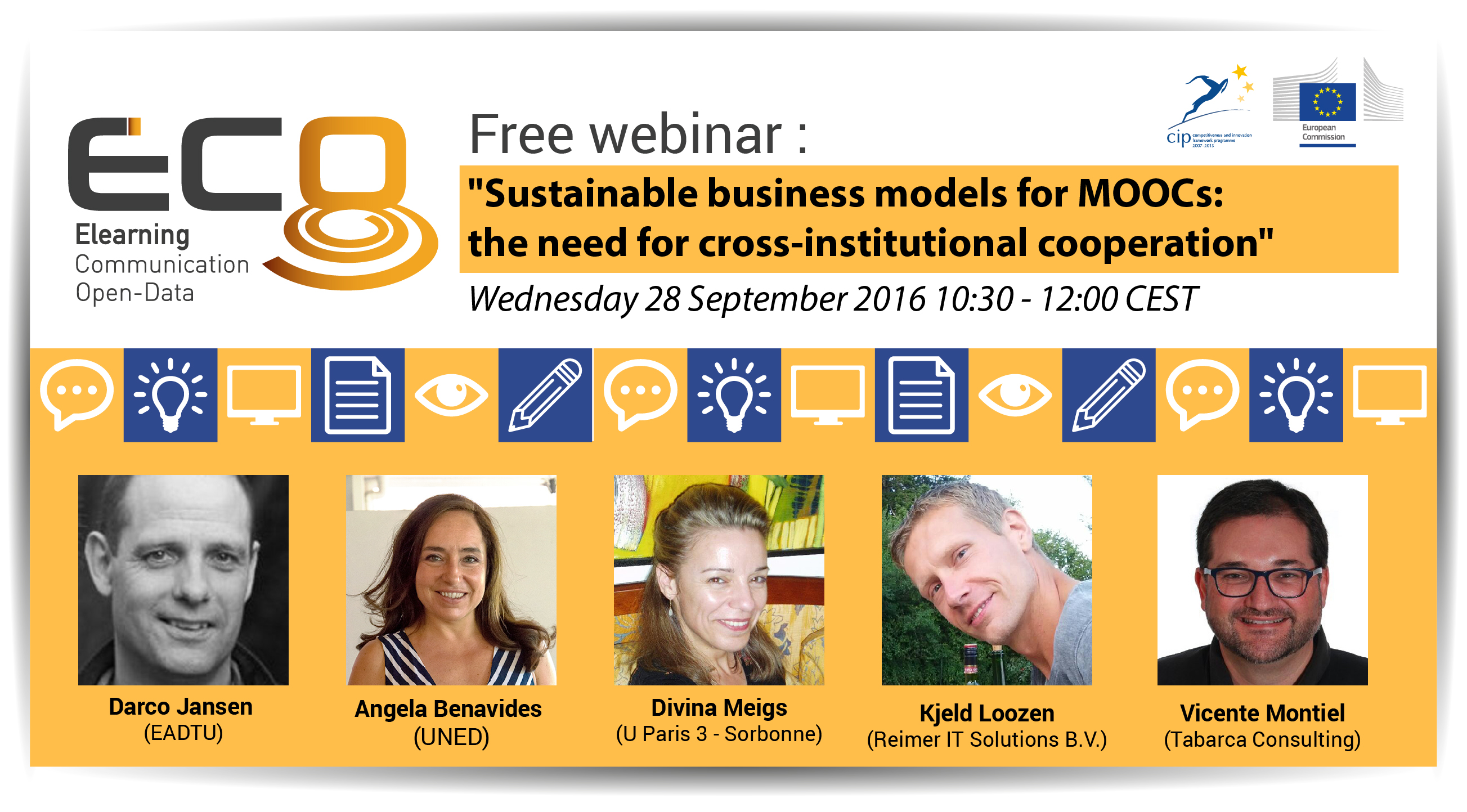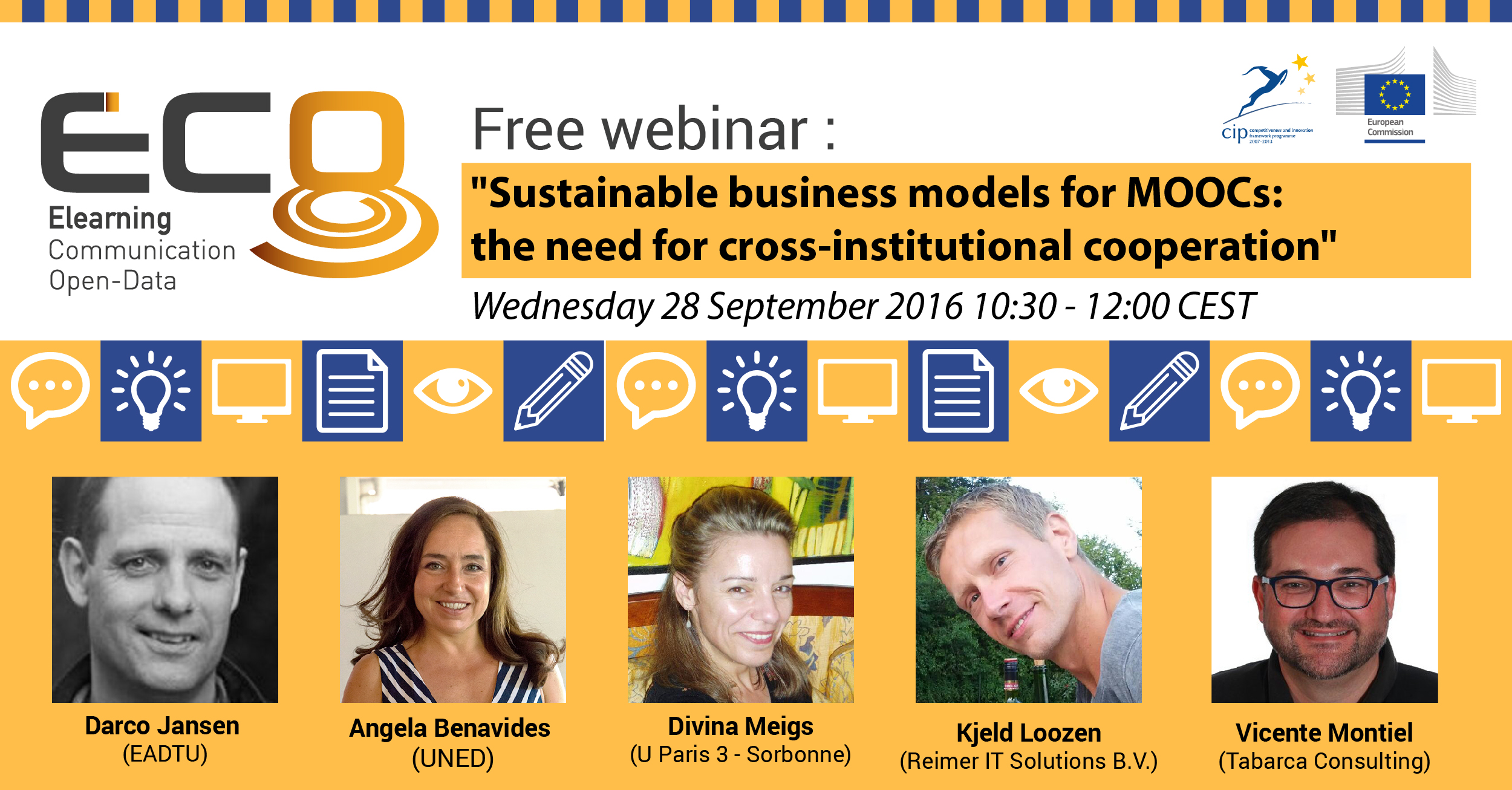By Darco Jansen, Programme Manager at EADTU
The ECO project is running for 3 years from February 2014 until January 2017. The coming period we will launch more MOOCs by ECO partners (so called second and third iterations). In the final project year we will select about 4.000 teachers who will be able to create their own MOOCs. At the end we are aiming for the provision of minimal 500 MOOCs.
Currently Europe diposes of 1014 MOOCs (see European MOOC Scoreboard). Globally this number is over 4000 MOOCs. But how many do we actually need? Let us figure out ratios that make sense.
Need for tertiary education
Nearly one-third of the world’s population (29.3%) is under 15. Today there are 165 million people enrolled in post-highchool tertiary education. Projections suggest that participation will increase significantly the coming years with a peak at 263 million in 2025. Accommodating the additional 98 million students would require more than 4 major universities (30,000 students) to open every week for the next 15 years.
Are MOOCs a solution to world’s need for tertiary education? It is favourable to be ambitious and try and calculate the number of MOOCs you need to educate these additional 98 million students. To be able to do this, let us make make the following assumptions:
- A master is 60-120 ECTS or about 20 to 40 courses of 3 ECTS or an average of 30 courses of 3 ECTS each.
- If a student wishes to complete a master in 4 to 10 years (on average 6 years). Consequently every student each year should complete 5 HE courses of 3 ECTS each and that over the course of 6 (consequitive) years.
- Over a period of 15 years 2,5 sstudent (15years/6years) has the need for 5 HE courses each year
- If the goal is to educate 98 million students to a master level for the next 15 years. Hence each year we need to offer about (5*98.000.000/2,5)= 196.000.000 certificates of HE course of 3 ECTS.
- Each MOOC (on average) attracts 25.000 participants of which 10% (2.500) complete successfully. So about 2.500 gets a certificate that counts for as a Masters Degree (ECTS credit). So with 1 MOOC we are able to issue a certificate to 2.500 participants. If we were to offer 1X MOOC 4 times a year, this equals 10.000 certificates.
In conclusion: the total number of MOOCs to accomplish this ca. 196.000.000/10.000 MOOCs = 19.600 MOOCs.
How can this be achieved?
A. 4 Major universities (30,000 students) to open, every week for the next 15 years
B. Develop 19.600 MOOCs that offer ECTS credits to 10.000 students each year
But this thought experiment brings upon another question. Rory McGreal during EMOOCs, 2014 in Lausanne questioned why we are not changing educational model and increase number of students? The answer to thi question is partly answered in this article on the ECO platform.
In line with the above reasoning, with 45,000 MOOCs is is theoretically possible to issue 450.000.000 certificates each year and therefore educate 15% of the world population to a master (> 1 billion). In 2010 on average the OECD countries spent about 1,6% of their GDB on their tertiary education (see Education at a Glance, 2013). Imagine what would happen if only 1% of that budget is spent by countries on the development and exploitation of MOOCs.
Although some state that education is not a mass customer industry (see for example Five myths about MOOCs ), one can (and must ) question how the need for affordable tertiary education can be provided.
The optimal solution is probably to continue opening universities (both traditional and distance teaching), as well as to encourage universities to develop high quality MOOCs. Given that we find ways that assist universities in aligning their MOOCs with their business models, the consequence will be better higher education for more people.
We already have produced more than 4000 MOOCs in three years. To accelerate this (and for economic reasons), ECO suggests to start re-using MOOCs for education in other languages and cultures instead of developing more and more from scratch. In the ECO project we are also focusing on open licence to support re-use and we will train teacher such that they will be able to develop MOOCs. From the 23rd of March 2015 the MOOC Design course will be available on the ECO Portal.
Let us seize the moment the opportunity.








